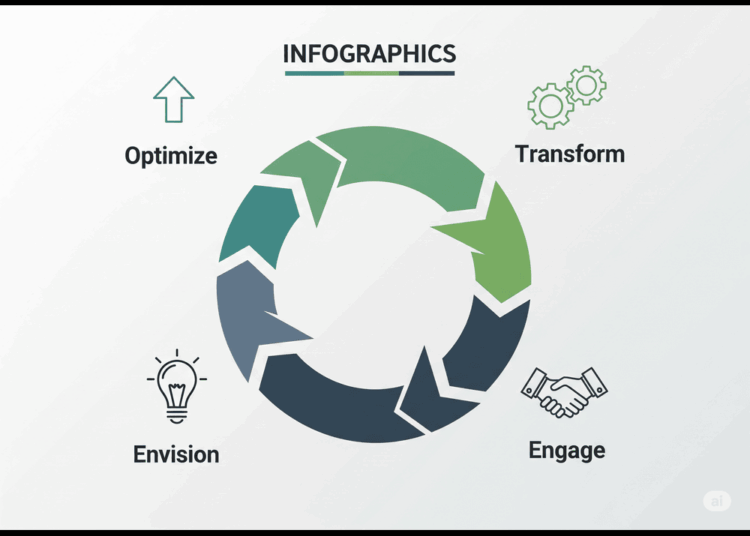Why Meta Management Is the Strategic Backbone of Business Transformation
In an era where change is constant, organizations must manage transformation with precision, alignment, and vision. Meta Management has emerged as the strategic backbone of business transformation, offering an integrated approach that ensures every element of change works in harmony. Rather than addressing transformation as isolated projects, Meta Management acts as the master framework that connects all initiatives into one coherent strategy.
Understanding Meta Management in Transformation
Meta Management is a higher-level discipline that coordinates and aligns all essential transformation functions—leadership, change management, process improvement, technology adoption, skills development, and cultural alignment—under a unified plan. It eliminates silos, ensuring that transformation activities are not fragmented but work together toward the organization’s vision.
This approach increases success rates because transformation failure often stems from disconnected efforts rather than a lack of expertise. With Meta Management, every component of change supports the others, reducing risk and improving execution.
How Meta Management Bridges Strategic Gaps
A significant advantage of Meta Management is its ability to bridge the gaps between different transformation disciplines. For example, process optimization cannot be fully effective without leadership alignment, and technology upgrades will fall short if employees are not adequately trained. Meta Management integrates these areas, ensuring that strategy, operations, and culture move forward together.
By connecting leadership, technology, governance, communication, and execution, Meta Management creates synergy that makes transformation more effective and sustainable.
The Four Phases of Meta Management
Meta Management typically follows four phases:
-
Envision with Meta Management – Define the strategic vision, build urgency, and align objectives with long-term goals.
-
Engage through Meta Management – Secure stakeholder commitment and foster collaboration across departments.
-
Transform via Meta Management – Implement coordinated changes in systems, processes, and culture.
-
Optimize using Meta Management – Ensure continuous improvement and embed new practices into the organization’s DNA.
These phases ensure that transformation is not just implemented but also sustained.
Meta Management and the BTM² Methodology
In the BTM² (Business Transformation Management Methodology), Meta Management acts as the overarching discipline that ties together all critical areas—such as strategy, benefits realization, and risk management—into a unified framework. Without Meta Management, even well-designed transformation plans risk becoming disjointed.
Meta Management for Culture and Leadership
Transformation is not purely a technical process—it’s also deeply cultural. Meta Management ensures leadership models, organizational values, and communication practices are aligned with transformation goals. Leaders play a crucial role in shaping change, and with Meta Management, they are equipped to guide teams through uncertainty with clarity and consistency.
Why Meta Management Is a Competitive Advantage
In today’s fast-paced market, companies need agility, resilience, and strategic clarity. Meta Management delivers these by orchestrating all moving parts of a transformation into a cohesive system. It turns complexity into clarity, helping organizations adapt quickly while staying aligned with their mission.
By fostering coordination, Meta Management reduces wasted resources, accelerates timelines, and creates measurable impact. Organizations that adopt this approach are better positioned to outperform competitors and respond to evolving challenges.
Embedding Meta Management in Your Organization
To successfully apply Meta Management, organizations should:
-
Define a clear vision – Establish why transformation is needed and what it will achieve.
-
Engage stakeholders early – Secure buy-in from leaders, teams, and partners.
-
Create an integrated roadmap – Coordinate activities across all transformation disciplines.
-
Embed continuous improvement – Use feedback and lessons learned to refine future transformation efforts.
These practices ensure that Meta Management is not a one-time exercise but an ongoing capability.
Conclusion
Meta Management is more than a concept—it is the essential framework that holds business transformation together. By aligning leadership, strategy, operations, and culture under a single integrated approach, MM increases the likelihood of transformation success. In a business world defined by rapid change, organizations that master Meta Management will have the resilience, agility, and clarity to thrive.
Explore more strategic insights in top business magazine IMPAAKT.













